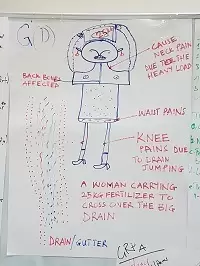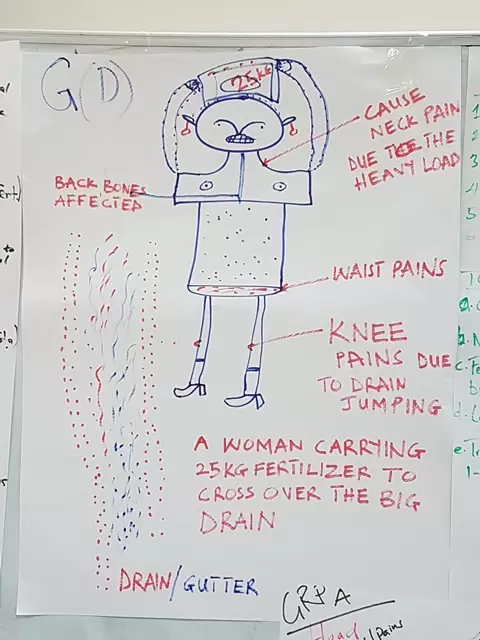Women’s workplace health and safety must get more attention

 Trade unions are key to making workplaces safer and healthier for all workers but often women’s occupational health and safety (OHS) is not given enough attention. This was the conclusion of a workshop held in Akuse, Ghana, from Nov. 26 to Nov. 28, 2019.
Trade unions are key to making workplaces safer and healthier for all workers but often women’s occupational health and safety (OHS) is not given enough attention. This was the conclusion of a workshop held in Akuse, Ghana, from Nov. 26 to Nov. 28, 2019.
The IUF co-organised workshop brought together IUF affiliates, OHS and women’s committees and management of three banana plantations (Golden Exotics, Volta River Estates Limited and Musahamat). A representative of the Ministry of Labour also attended as Ghana is introducing its first comprehensive OHS bill, providing an ideal opportunity to push for legislation with a gender sensitive approach to health and safety.
Creating awareness of women’s OHS for all workers, including men, but also managers and supervisors, was agreed as one of the most effective ways to address women’s OHS, as well as recruiting more women into trade unions and especially into OHS committees. Adopting a gendered approach to OHS was stressed as a good way to point out the employers’ responsibility to make the workplace safe for every worker and to oppose the behaviour based safety approach in OHS.
Thanks to the proactive work done by the IUF and affiliates, Golden Exotics Limited (GEL) management, Fair Trade Africa and Banana Link, women’s employment on the GEL plantation has increased by 25% over the last two years.
However, women workers in the packhouse reported skin irritation and related health issues due to oversized gloves that allow water contaminated with chemicals to run down their arms. They also reported back problems due to sinks in the packhouse being at the wrong height for women workers.
Participants got a better understanding of the women’s biological cycle and concluded that more women’s toilets needed to be built over the plantations especially for menstruating women working in the fields.
“The workshop contributed to building a more women worker-friendly environment by focusing on gendered health and safety at work and the gender data gap” commented IUF regional women’s coordinator, Adwoa Sakyi.
The workshop welcomed the production of a soon to be published IUF publication “Making women visible in occupational health and safety”.